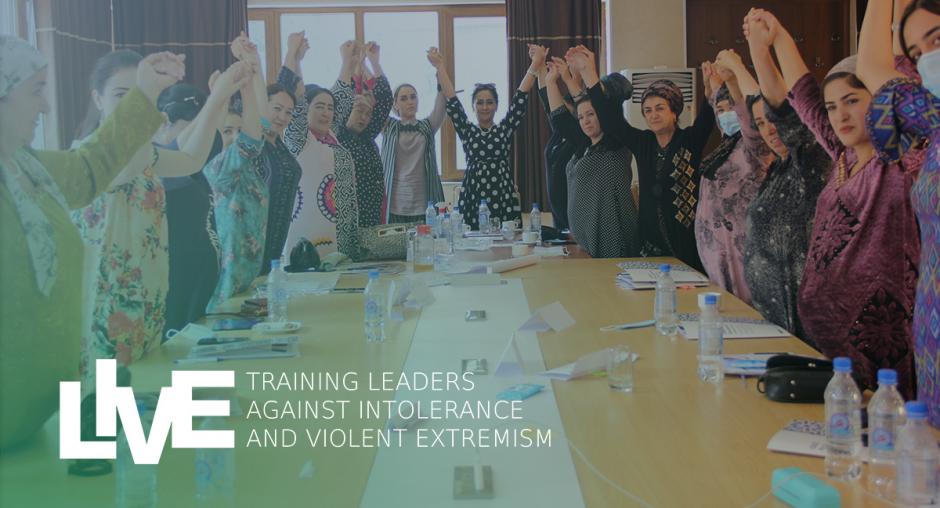Erasing frontiers – OSCE holds cross-regional seminars towards establishing a community of preventing and countering violent extremism and radicalization that lead to terrorism

“What can each of us offer to others to build a community of practice in preventing and countering violent extremism and radicalization that lead to terrorism (P/CVERLT)?” This question gave direction to a series of three, three-day cross-regional seminars for certified facilitators of the OSCE’s Leaders against Intolerance and Violent Extremism (LIVE) capacity-building initiative, organized by the Action against Terrorism Unit of the OSCE Transnational Threats Department.
The seminars took place between 16 November and 8 December 2021. Over 50 graduates of train-the-trainer courses for LIVE facilitators from South-Eastern Europe and Central Asia attended the seminars. Participants shared their experiences and ideas for establishing a community of practice to support their future training delivery, expanding their relevant cross-regional networks in the process.
Participants took stock of lessons learnt and good practices in applying their facilitation skills and implementing prevention activities since completing the train-the-trainer course, inspiring and supporting one another. To set the tone for ongoing peer exchange, selected participants talked at length about their local delivery of LIVE trainings and shared lessons learned from the implementation of prevention initiatives by members of local communities whom they trained.
“The local level work of civil society actors in building community resilience is vital to preventing the spread of violent extremism. However, they cannot work in isolation and without support and resources. Linking practitioners together by creating meaningful spaces - in person and online - for sharing, learning and connecting is necessary to ensure long term impact of P/CVERLT programs,” said Georgia Holmer, Head of Action against Terrorism Unit. “Bringing front-line practitioners, who focus on promoting tolerance and inclusion, together across national and regional boundaries is one of the most powerful steps towards building peace,” she added.
The cross-regional seminars provided participants with opportunities to deepen their relevant knowledge and facilitation skills through tailored sessions with expert trainers of the LIVE train-the-trainer courses. The seminar topics, selected together with the participants, included emerging trends in violent extremism, gender-sensitive prevention approaches, and the Do No Harm approach. The idea of the latter, being mindful of what bring people together and what divides them, different experiences and needs within a community when designing a prevention initiative, strongly resonated with the participants.
"Participants of our LIVE training sessions have seen a lot of potential in facilitators, materials and methodology. This will serve as a solid basis to continue building multi-stakeholder partnerships and apply conflict-sensitive approaches to the issues of violent extremism and radicalization to violence in different regions of Tajikistan,” shared LIVE facilitators Rukhshona Shobudinova and Maryam Davlatova.
With guest speakers from UN Women, the Global Community Engagement and Resilience Fund (GCERF), and the Network for Religious and Traditional Peacemakers, participants had more in-depth discussions on the role of religion in preventing violent extremism, as well as practical tools for advocacy and fundraising as relevant to their local training participants.
